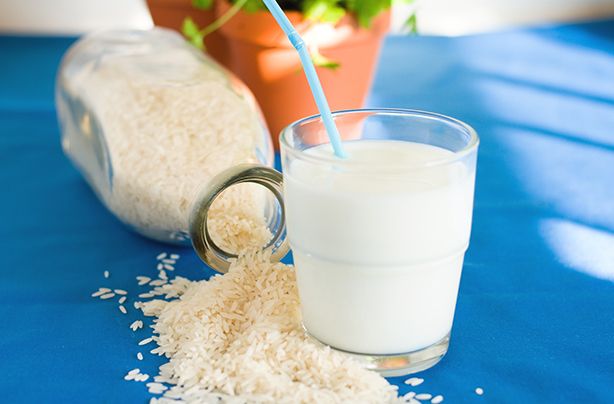Warning issued to parents after baby foods are found to contain dangerously high levels of arsenic
New research from Queen's University Belfast has found that 56% of rice based products contain over the EU limit

Health warnings have been issued after a study found that up to 75% of rice products sold as baby food contain illegal levels of the chemical arsenic.
Recent research carried out by scientists at Queen's University Belfast tested over 70 different rice-based products, and found that 56% contained over the EU legal limit of 0.1 milligrams of arsenic. Even more worryingly is that rice – generally easily digestible and mild flavoured – is often used as the core ingredient in foods given to babies, and so dangerously high concentrations of arsenic are being consumed by very small bodies. Of the foods tested primarily marketed as baby-foods, 73% were over the EU limit for arsenic.
Although arsenic occurs naturally in our food, often because it exists in the water the crop grows in, levels can be exacerbated by industrial toxins and pesticides. EU regulations were introduced in early 2016 to limit the harm caused by ingesting the chemical, particularly in young children.
The Food Standards Agency said at the time: 'It's impossible to eliminate from our food. However, having too much arsenic in our diet could be harmful to health.'

These new findings suggest that despite the new rules, the EU laws are failing to be met.
'We're talking about immune development, growth, IQ. They're all impacted at the levels of consumption you'd get from rice consumption,' author of the study, Andy Meharg, told The Independent. 'I'm not scaremongering. EU laws have been passed, and what we're doing is saying these laws aren't being met.
'Products such as rice cakes and rice cereals are common in babies' diets. This study found that almost three-quarters of baby crackers specifically marketed for children exceeded the maximum amount of arsenic.'
GoodtoKnow Newsletter
Parenting advice, hot topics, best buys and family finance tips delivered straight to your inbox.
Rice milk is also growing in popularity, with some mothers preferring it to cow's milk once their babies are weaned off breast milk; but the Food Standards Agency advises against milk substitutes, particularly from rice and grains, as this can unnecessarily increase already dangerously high levels of arsenic in their diets.
They said in a statement: 'We recommend that consumers eat a balanced, varied and healthy diet. Rice and rice products can be part of that, including for young children.
'However, we do advise that toddlers and young children – ages one to four-and-a-half – should not be given rice drinks as a substitute for breast milk, infant formula or cow's milk. This is because of their proportionally higher milk consumption and lower bodyweight compared to other consumers.'
Charlotte Stirling-Reed, a child and mother nutrition specialist at srnutrition.co.uk, says that we should approach with caution, but not cut out rice-based foods all together.
'I would say that it's all about variety with young children and babies. The more variety you can give them from a young age the better, for numerous reasons, including not getting too much of substances naturally present in foods such as arsenic!' she told GoodtoKnow.
'There is no need to avoid rice products completely and levels of arsenic in baby food especially are closely monitored but variety is the best thing to think about when feeding your baby.'
Trusted, informative, and empathetic – GoodToKnow is the ultimate online destination for parents. At GoodtoKnow, our mission is 'simple': we're trying to make sense of parenthood. On the site, you'll find everything you need for a happy, healthy family life. Our huge archive of content includes more than 18,000 articles and 1,500 how-to videos. These include expert-backed advice features on parenting, dealing with relationship changes after having a baby, self-care for mums and managing your family finances. We also feature tried-and-tested product reviews and buying recommendations for every stage of family life - from prams and Moses baskets to birthday gifts and top toys.